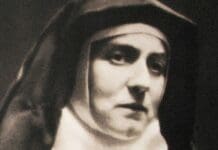Researchers at Rome’s Pontifical Biblical Institute have uncovered previously lost documents that detail the pivotal role Catholic institutions played in sheltering Jews during the Nazi occupation of Rome in the 1940s.
During this bleak period, from September 1943 to June 1944, Rome’s Jewish community faced severe persecution. Of the estimated 10,000 to 15,000 Jews in the city, a heartbreaking 2,000, including many children, were deported and murdered. Amidst this atrocity, Catholic religious congregations emerged as unsung heroes, offering refuge and safety.
This groundbreaking find comprises meticulous records by the Italian Jesuit, Fr. Gozzolino Birolo, crafted between June 1944 and spring 1945. The details provide a vivid account of more than 4,300 individuals, of which 3,600 were named. Astonishingly, 3,200 of these were identified as Jews.
Although the historian Renzo de Felice had previously published details of the congregations that offered refuge in 1961, the specifics of those sheltered had been considered lost.
“The documentation thus significantly increases the information on the history of the rescue of Jews in the context of the Catholic institutions of Rome,” a joint statement from the Pontifical Biblical Institute, the Jewish Community of Rome, and Yad Vashem Holocaust Museum confirmed.
One poignant highlight from these records includes the personal stories of the Jews hidden—where they were sheltered and sometimes, a glimpse into their lives before the Nazi’s reign of terror. The integrity of these records was vouched for by eminent historians like Claudio Procaccia and Iael Nidam-Orvieto, solidifying their historical significance.
To respect privacy concerns, the complete documentation remains restricted. However, its essence was shared during a workshop at Rome’s Shoah Museum on 7 September 2023.

















